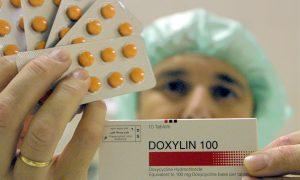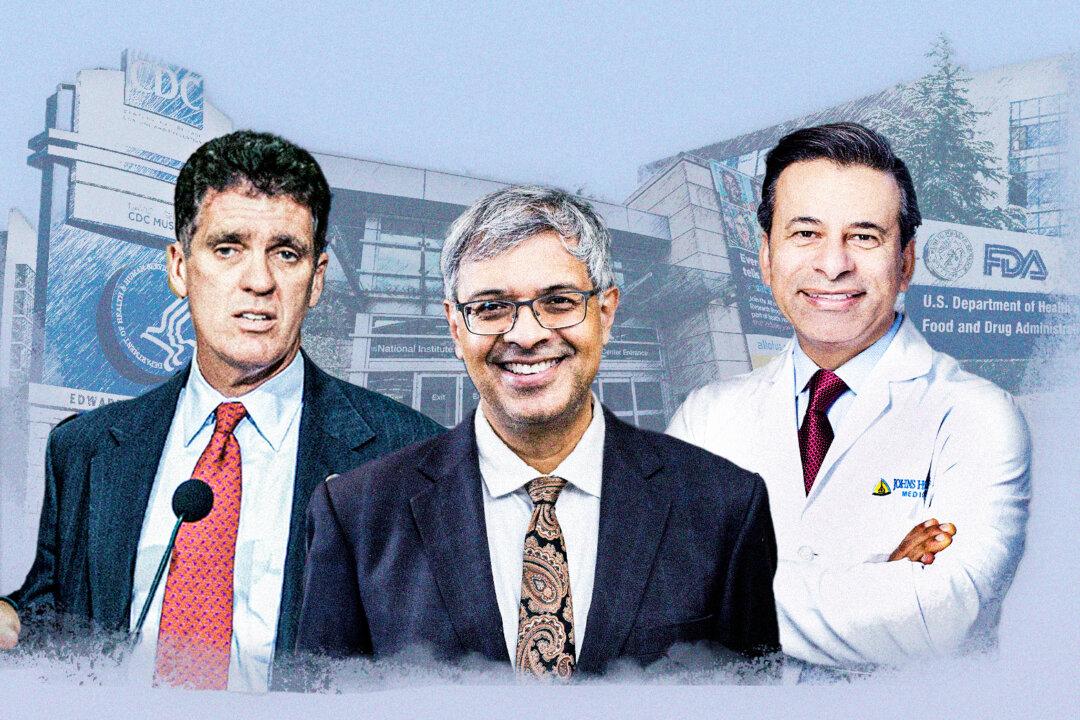Two types of animal antibiotics and an animal contraceptive have been detected in food samples from the United States’ top 10 most popular fast-food chains, according to a laboratory report.
In September, Moms Across America (MAA) submitted food samples from 10 popular U.S. food chains to the Health Research Institute, an Iowa-based nonprofit laboratory that tests food for nutritional value, biofunctionality, and contaminants and toxins, requesting that the laboratory test the samples for more than 100 common veterinary drugs and hormones. A nonprofit activism group formed by mothers in the United States, MAA aims to make the public aware of foods that contain genetically modified organisms (GMO) and pesticides.
8 in 10 Popular Fast-Food Chains Tested Positive
Most of the food was sampled from the United States’ top 20 most popular food chains and an In-N-Out Burger location, which ranks 33 but was included because it often claims to be a “healthier” kind of fast food. The final report focused on the 10 most popular chains. Volunteers for MAA went to their local McDonald’s, Starbucks, Subway, Chick-fil-A, Burger King, Taco Bell, Chipotle, Dunkin’, Wendy’s, Domino’s, and other restaurants on the list and ordered the same meal twice. In total, 42 samples were tested from 21 restaurants.Kept in its packaging, each meal was sealed, frozen, and mailed to the Health Research Institute.
At the laboratory, the food was ground up and tested for veterinary drugs and hormones.
With the exception of Chipotle and Subway, all of the food samples tested positive for veterinary drugs.
Monensin, Narasin, and Nicarbazin
The drug concentrations in all of the food samples were below 2 micrograms per kilogram, which is significantly below the Food and Drug Administration’s (FDA) acceptable daily intake for the drugs.Monensin
Less than 0.5 microgram per kilogram of the antibiotic monensin was detected in the Taco Bell, Dunkin', Wendy’s, Domino’s, Burger King, and McDonald’s samples.Monensin is a commonly used veterinary antibiotic with a slim margin of safety. Side effects of monensin in animals include anorexia, diarrhea, weakness, and motor problems; an overdose can lead to poisoning or even death.
Narasin
Less than 2 micrograms per kilogram of narasin was detected in a Wendy’s cheeseburger. It was also found in trace amounts in a meal from Dunkin’, Domino’s food, and a Starbucks sandwich.Narasin is an antibiotic and antiparasitic feed additive that helps to control parasitic infections in fattened chicken. It’s also often added to cattle feed, as it increases dry matter intake. Both narasin and monensin are ionophores, meaning that they can disturb the balance of ions in cells and are often used in animals to control bacterial and parasitic infections.
Side effects of narasin in animals include anorexia, diarrhea, and degeneration of heart and skeletal muscles.
Nicarbazin
Nicarbazin, an animal antiparasitic and contraceptive, was detected in the Chick-fil-A chicken sandwich sample. Less than 0.5 microgram per kilogram of nicarbazin was detected.The drug is primarily used as an antiparasitic drug in fattened chickens and turkeys, but it has also been used for population control of geese and pigeons.
Because it’s highly toxic to agricultural embryos and decreases egg laying and hatching among grown poultry populations, many farmers have called for more regulations to protect their animals from such exposures.
“The impact of millions of Americans, especially children and young adults, consuming a known animal contraceptive daily is concerning,” Zen Honeycutt, MAA’s executive director, said. “With infertility problems on the rise, the reproductive health of this generation is front and center for us, in light of these results.”
Few studies have investigated the effects of veterinary drugs in humans.
“That’s the problem,” Ms. Honeycutt told The Epoch Times. “These are veterinary drugs and hormones. ... so the only studies that I have found and that you will find will be for animals. [They’re] not authorized for humans, and yet they’re being allowed [into the food supply].
Are All Fast-Food Chain Stores Affected?
Because each food sample was purchased from only one store per fast-food chain, Ms. Honeycutt said that they would need to do more tests to know if all other chains served food containing similar veterinary drugs.However, she suspects that other chains may also be affected.
“My understanding is that they’re grinding the meat up of hundreds of birds in order to make these processed meat patties. So when one is contaminated, it likely contaminates possibly hundreds of other samples. ... If one comes down with this particular disease, then the farmer will likely treat any of the birds at a facility,” Ms. Honeycutt said.
When asked about potential package contamination, Mr. Fagan said that the packages came to the Health Research Institute from different states across the United States, so while one package might have been contaminated, it would have been difficult for all of them to have been contaminated.
Thiabendazole, a fungicide and parasiticide that has immunosuppressive effects, was detected in nearly 30 percent of the samples, and a developmental toxin was found in more than 40 percent of them.
Representatives of the fast-food chains reported on in this article didn’t respond to requests for comment by press time.








